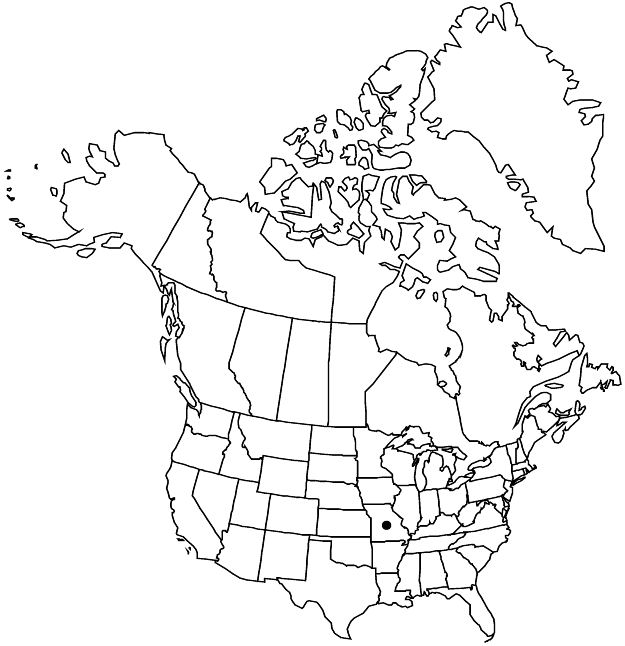familyRosaceae
subfamilyRosaceae subfam. Amygdaloideae
genusCrataegus
sectionCrataegus sect. Coccineae
speciesCrataegus pruinosa
Difference between revisions of "Crataegus pruinosa var. magnifolia"
Novon 16: 386. 2006.
Conservation concernEndemic
Basionym: Crataegus magnifolia Sargent Trees & Shrubs 2: 69, plate 132. 1908
FNA>Volume Importer |
imported>Volume Importer |
||
| (6 intermediate revisions by 2 users not shown) | |||
| Line 14: | Line 14: | ||
|label=Endemic | |label=Endemic | ||
}} | }} | ||
| − | |basionyms={{Treatment/ID/ | + | |basionyms={{Treatment/ID/Basionym |
|name=Crataegus magnifolia | |name=Crataegus magnifolia | ||
|authority=Sargent | |authority=Sargent | ||
| + | |rank=species | ||
| + | |publication_title=Trees & Shrubs | ||
| + | |publication_place=2: 69, plate 132. 1908 | ||
}} | }} | ||
|synonyms= | |synonyms= | ||
| Line 34: | Line 37: | ||
|distribution=Mo. | |distribution=Mo. | ||
|discussion=<p>Of conservation concern.</p><!-- | |discussion=<p>Of conservation concern.</p><!-- | ||
| − | --><p>Variety magnifolia, a local variant from Jasper County in southern Missouri, not seen for many years, is distinct for its remarkable leaf shape and cream anthers. It would be more consistent with the logic of this treatment to place var. magnifolia with Crataegus cognata, but the combination has not been made.</p> | + | --><p>Variety magnifolia, a local variant from Jasper County in southern Missouri, not seen for many years, is distinct for its remarkable leaf shape and cream anthers. It would be more consistent with the logic of this treatment to place <i></i>var.<i> magnifolia</i> with <i>Crataegus cognata</i>, but the combination has not been made.</p> |
|tables= | |tables= | ||
|references= | |references= | ||
| Line 43: | Line 46: | ||
-->{{#Taxon: | -->{{#Taxon: | ||
name=Crataegus pruinosa var. magnifolia | name=Crataegus pruinosa var. magnifolia | ||
| − | |||
|authority=(Sargent) J. B. Phipps | |authority=(Sargent) J. B. Phipps | ||
|rank=variety | |rank=variety | ||
| Line 58: | Line 60: | ||
|publication year=2006 | |publication year=2006 | ||
|special status=Conservation concern;Endemic | |special status=Conservation concern;Endemic | ||
| − | |source xml=https:// | + | |source xml=https://bitbucket.org/aafc-mbb/fna-data-curation/src/2e0870ddd59836b60bcf96646a41e87ea5a5943a/coarse_grained_fna_xml/V9/V9_983.xml |
|subfamily=Rosaceae subfam. Amygdaloideae | |subfamily=Rosaceae subfam. Amygdaloideae | ||
|tribe=Rosaceae tribe Gillenieae | |tribe=Rosaceae tribe Gillenieae | ||
Latest revision as of 23:00, 5 November 2020
Shrubs or trees, height not recorded. Leaves: blade ovate to ovate-deltate, 5–7 cm, length/width = 1.3–1.5, lobes 0 or 1–4 per side, obscure, lobe apex ± obtuse, base broadly cuneate to subtruncate, adaxial surface glabrous, sometimes sparsely appressed-hairy along veins. Inflorescence branches glabrous. Flowers 18 mm diam.; stamens 20, anthers cream.
Phenology: Flowering Apr; fruiting Sep–Oct.
Habitat: Chalk barrens, along rocky watercourses
Elevation: 100–200 m
Discussion
Of conservation concern.
Variety magnifolia, a local variant from Jasper County in southern Missouri, not seen for many years, is distinct for its remarkable leaf shape and cream anthers. It would be more consistent with the logic of this treatment to place var. magnifolia with Crataegus cognata, but the combination has not been made.
Selected References
None.
Lower Taxa
None.
